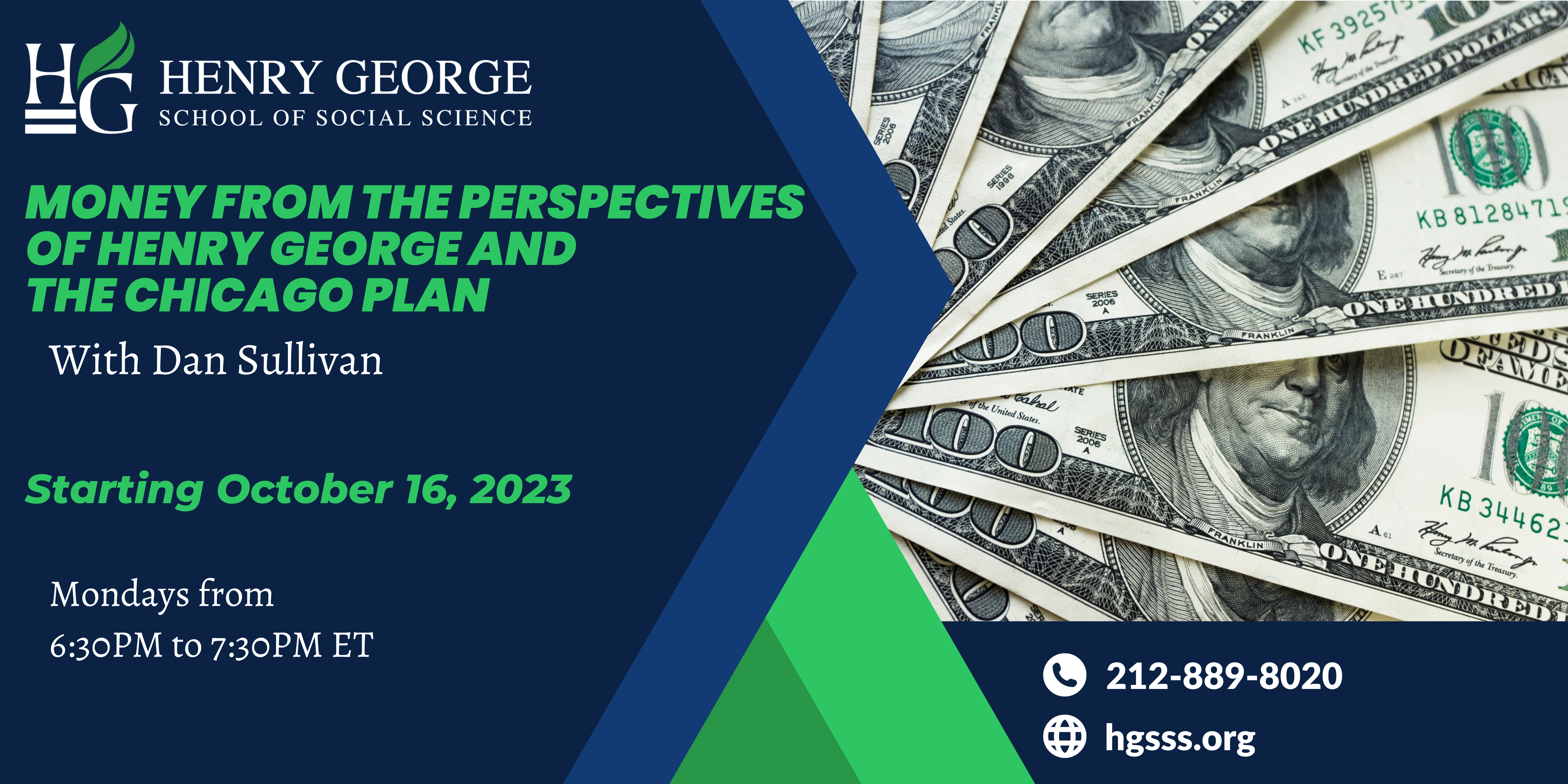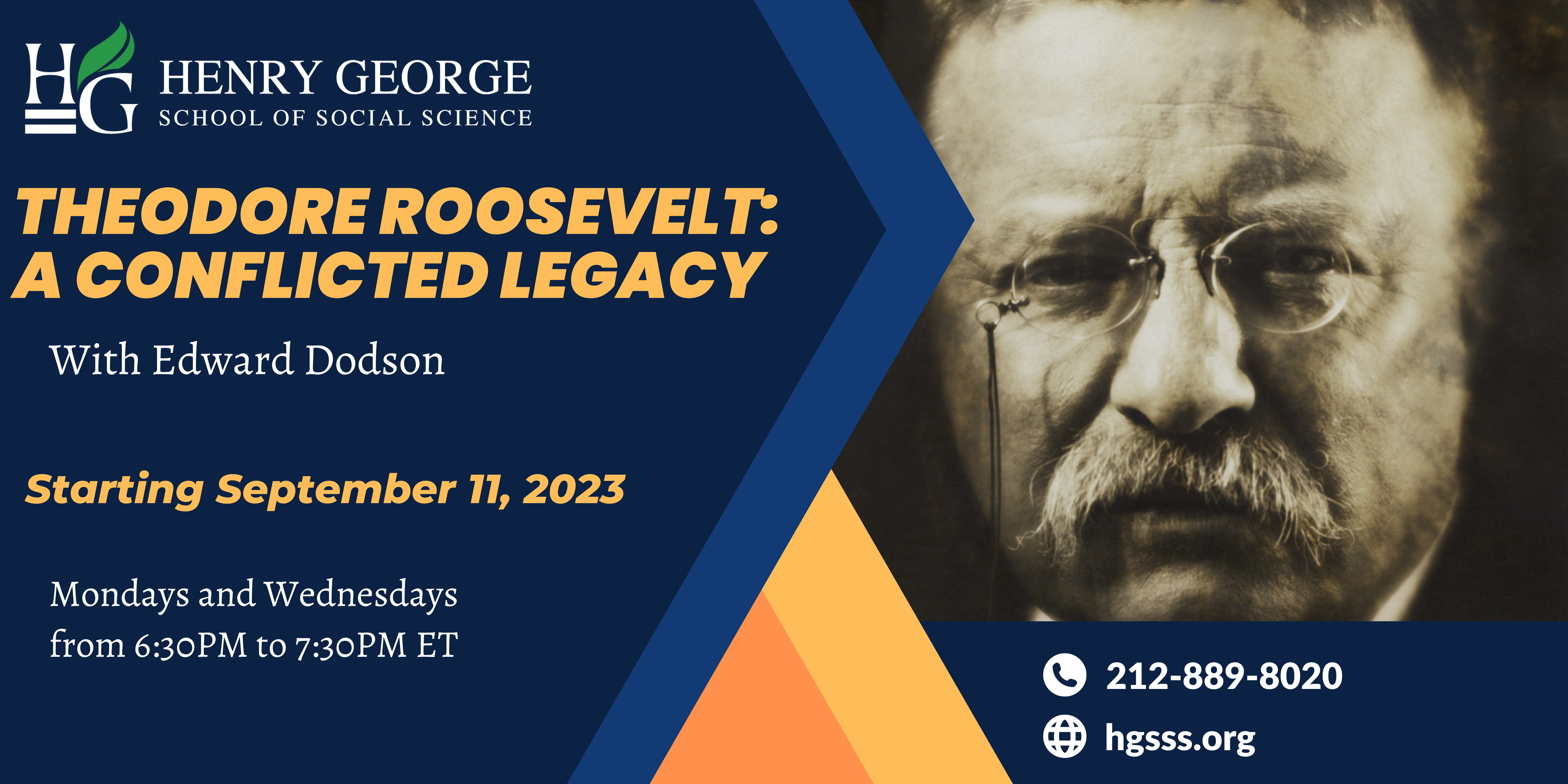The Mechanics of Money Creation
Session 2

The Mechanics of Money Creation
The U.S. dollar and most national currencies are defined by the government but issued by banks. In this 5 session course, Allen Smith will explain the simple mechanics by which private bank create money through debt contracts. The course will also describe the working of the payment system, the role of central banks and explain how our money system influences economic choices and social outcomes such as wealth inequality. This course will combine a study of relevant theories with applications to recent events and policy debates. In this connection, Henry George’s concept of money will be re-visited as well as the relations between finance and land markets.
Instructor: Allen Smith
Dates: Mondays – 11/13, 11/20, 11/27, 12/11, 12/18
Location: Online via Zoom
Note: This is an online event. After registration, the Zoom link, along with the Meeting ID and Passcode, will be provided via email the day of each session.
Session 2





